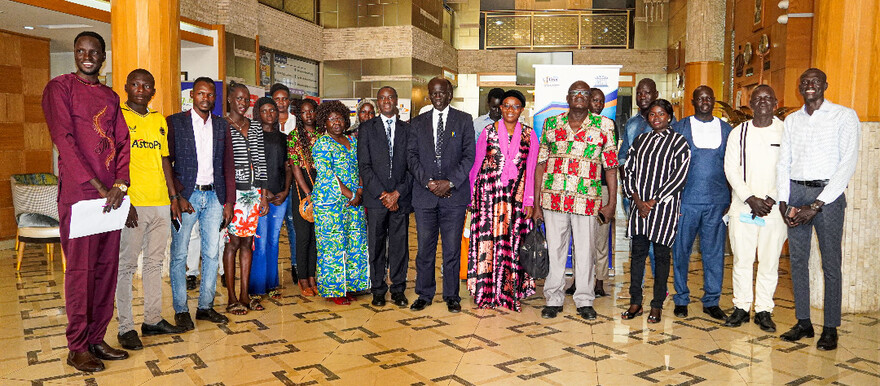The Union of Journalists of South Sudan (UJOSS) has concluded a three-day training for journalists reporting on the constitution-making process, gender and conflict-sensitive reporting in Juba this week.
The workshop is a continuation of UJOSS training for the 10 states, which is being supported by The United Nations Educational, Scientific and Cultural Organization (UNESCO).
The workshop was opened Wednesday by the Director General for Media Authority and Media Compliance in South Sudan, Mr. Sapana Abuyi.
“This training is very important for you as a journalist and for us as members of the media fraternity in South Sudan. Some people are now trying to misinterpret that too many workshops have been conducted, but I want to tell you that they are not yet too many. Learning is a continuous process,” Abuyi said.
“We are young in this sector as media. It was just in 2013 when our media laws were passed by the parliament, so 2013 is just like the day before yesterday. Others have been in this fraternity for decades, but they are still training their journalists because your work is the most sensitive and most important work,” he added.
On reporting on the constitutional process, Mr. Sapana Abuyi said, “The Constitution is the mother of the land. And when you are reporting about it, there should be a lot of accuracies. Yes, there are challenges in your profession, but these challenges will one day be overcome through your good reporting.”
For his part, UNESCO Country Representative in South Sudan Mr. Julius Banda said: “As UNESCO, we are very pleased to be here once again. As you also focus specifically on gender equality, that message is going to be strengthened and amplified not only as a lesson for the three days, but the real task is that to see it in the work that you will actually produce later in the articles.”
Lansana Wonneh, UN Women Deputy Country Representative in South Sudan, said: “As journalists, collectively, you hold a pen that sets the country’s agenda. So you are uniquely positioned to inform the public on crucial societal issues, not least on the equality of women, men, girls and boys. It is your duty to provide transparent, objective information about the world and what is happening around you. So the truth is that in South Sudan and the world, women are faced with this proportionate struggle.”
Ayak Ater Ajak, UJOSS Vice president, said: “Our main role in the union of journalists is to improve the capacity of journalists, just like this training which focuses on gender reporting and media ethics. So we want journalists to be trained in their profession, and that requires us to organize such workshops.”
About 25 journalists from various media houses in Juba attended the workshop, which ended on Friday.




